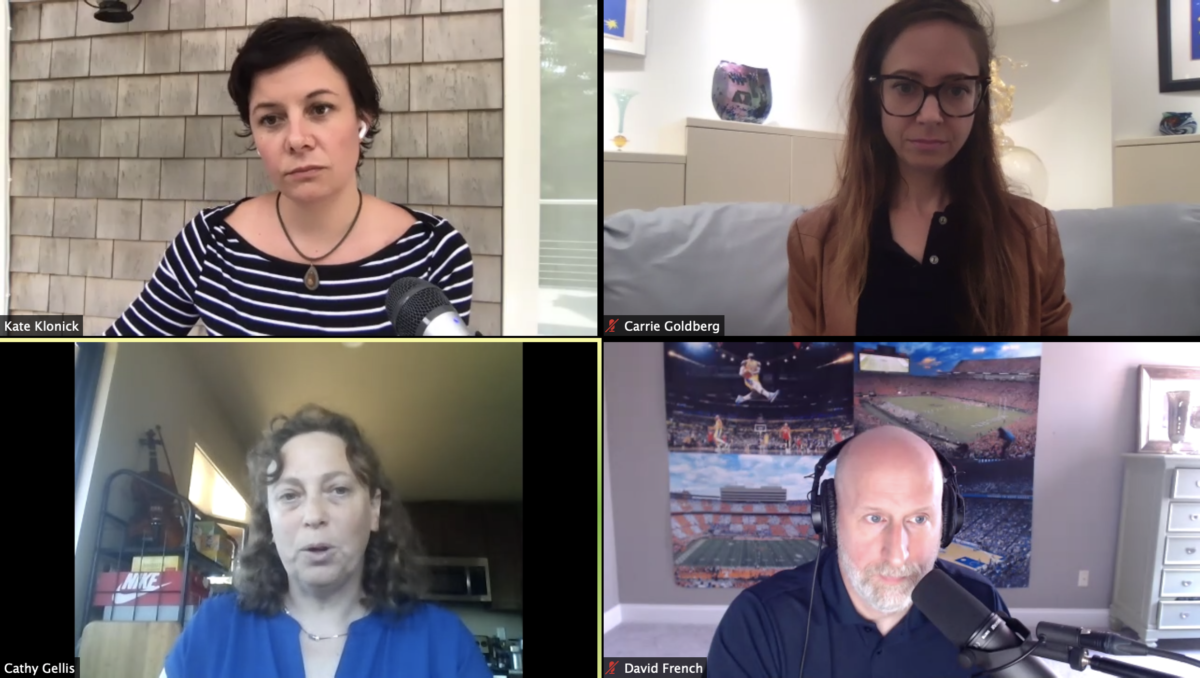Section 230 Under Attack From the Right and the Left
June 26, 2020 — The debate over Section 230 of the Communications Decency Act spans a broad range of views, with some arguing that it essentially plays the same role as the First Amendment and others claiming that it wrongfully enables significant abuse. Speaking at a Yale Law School webinar on Thur
Em McPhie

June 26, 2020 — The debate over Section 230 of the Communications Decency Act spans a broad range of views, with some arguing that it essentially plays the same role as the First Amendment and others claiming that it wrongfully enables significant abuse.
Speaking at a Yale Law School webinar on Thursday, Attorney Cathy Gellis said she was surprised by the speed at which public opinion had turned against the statute.
“Section 230 worked — we got an internet, and the internet has allowed, for the first time in history, all seven billion of us on earth to interact with each other,” she said. “The downside is all seven billion people on earth can now interact with each other, and we don’t really know how to do it very well.”
New tools and norms to better deal with various forms of online speech are likely to develop, but the process will take time, Gellis said.
“I think we can get there, as long as we don’t throw out the baby with the bathwater and revert back artificially to a time before we had this technology that would enable these connections,” she added.
Much of the opposition to Section 230 has come from Republicans such as Sen. Josh Hawley, R-Mo., who argue that it allows platforms to unfairly discriminate against conservative ideas.
David French, attorney and senior editor of conservative political magazine The Dispatch, said he could understand this fear, but argued that it was not the government’s role to prevent such alleged discrimination from happening.
“You better be sure that you’re going to be in charge of the government indefinitely, if you’re going to place the government in that much control,” he said. “As a matter of constitutional principle, I reject that appeal to the government, and as a matter of pragmatics, I think it’s shortsighted.”
Section 230 repeal or modification should be renamed the “Bring Porn to Facebook Act,” French joked, because of the all-or-nothing approach it would force.
“A version of Section 230 would lock in through the First Amendment, which is something that I think a lot of critics of Section 230 are completely overlooking,” French said. “But the getting from A to B would be messy — there would be a blizzard of litigation.”
Big tech platforms, which are the primary target of proposed Section 230 modifications, would likely be able to muscle through this litigation, French predicted. But smaller platforms, he warned, might not have the resources to survive it.
“I don’t think that scaling back the immunity for tech companies is going to suddenly flood the world with litigation,” argued Carrie Goldberg, attorney and founding partner at C.A. Goldberg PLLC.
Section 230 has been in place for the entire history of the internet as it exists today, she added, making it difficult to accurately predict what might happen in its absence.
Section 230 is also criticized for protecting platforms that enable abuse
Platforms being held liable for users’ abuses is comparable to schools being held liable for Title IX violations and landlords being held liable for dangerous conditions on their properties, Goldberg suggested.
“It’s not unusual for third parties to be held responsible when they are being deliberately indifferent, or when their head is in the sand and they’re refusing to see or hear things that happen on their watch,” she said.
Goldberg also rejected the idea that giving individuals the ability to sue companies for harms caused or furthered by their platforms went against the First Amendment.
“Demanding that companies share responsibility for the really extreme abuses that happen on platforms is not attacking speech,” she said.
Many of the platforms currently being protected by Section 230 have expanded far beyond the bulletin-board nature of the earliest interactive internet services, pointed out St. John’s University Law Professor Kate Klonick.
“In 1996, when [Section 230] was drafted, the things that it was really speaking to were message boards and things that were very clearly speech, and now we have all of these apps and all of these types of things that are really performing more services and conduct,” she said.
Section 230 has allowed big tech companies to grow “without any of the pressure that we see in other industries to be creating safe products or to be thinking about how their clients and their users and their customers could be injured if they make bad decisions,” Goldberg said.
As a result, she added, her law firm has been flooded with cases of harm enabled by social media, such as a man who used Tinder to arrange a meeting with a young girl who he then murdered, or rampant child sexual abuse on Instagram.
“I’m not talking about defamation or a bunch of Twitter trolls,” she said.
French agreed that these serious violations complicated the issue, but maintained that it still came down to free speech.
“We have this incredibly difficult challenge that I think is never going to be fully solved,” he said. “And I think we just have to get comfortable with [the idea that] we’ll never fully solve it, because we’re dealing with human beings.”










Member discussion